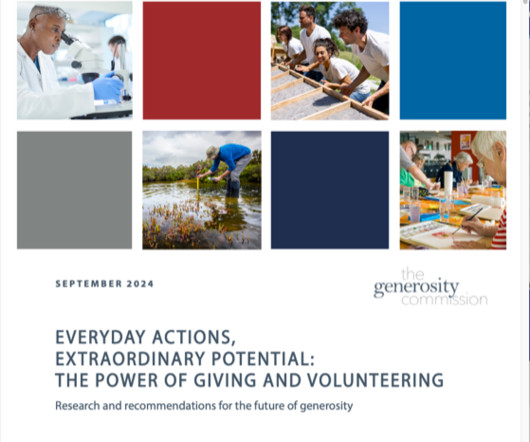Generosity Commission: Giving, Volunteering And Civil Society Complexities
The NonProfit Times
SEPTEMBER 17, 2024
According to The Generosity Commission, they instead are complex actions that go straight to the core of civil society and democracy, which includes declining trust of institutions and neighbors and social isolation. By Paul Clolery Making a donation to charity or volunteering time would seem to be relatively simple acts.











Let's personalize your content